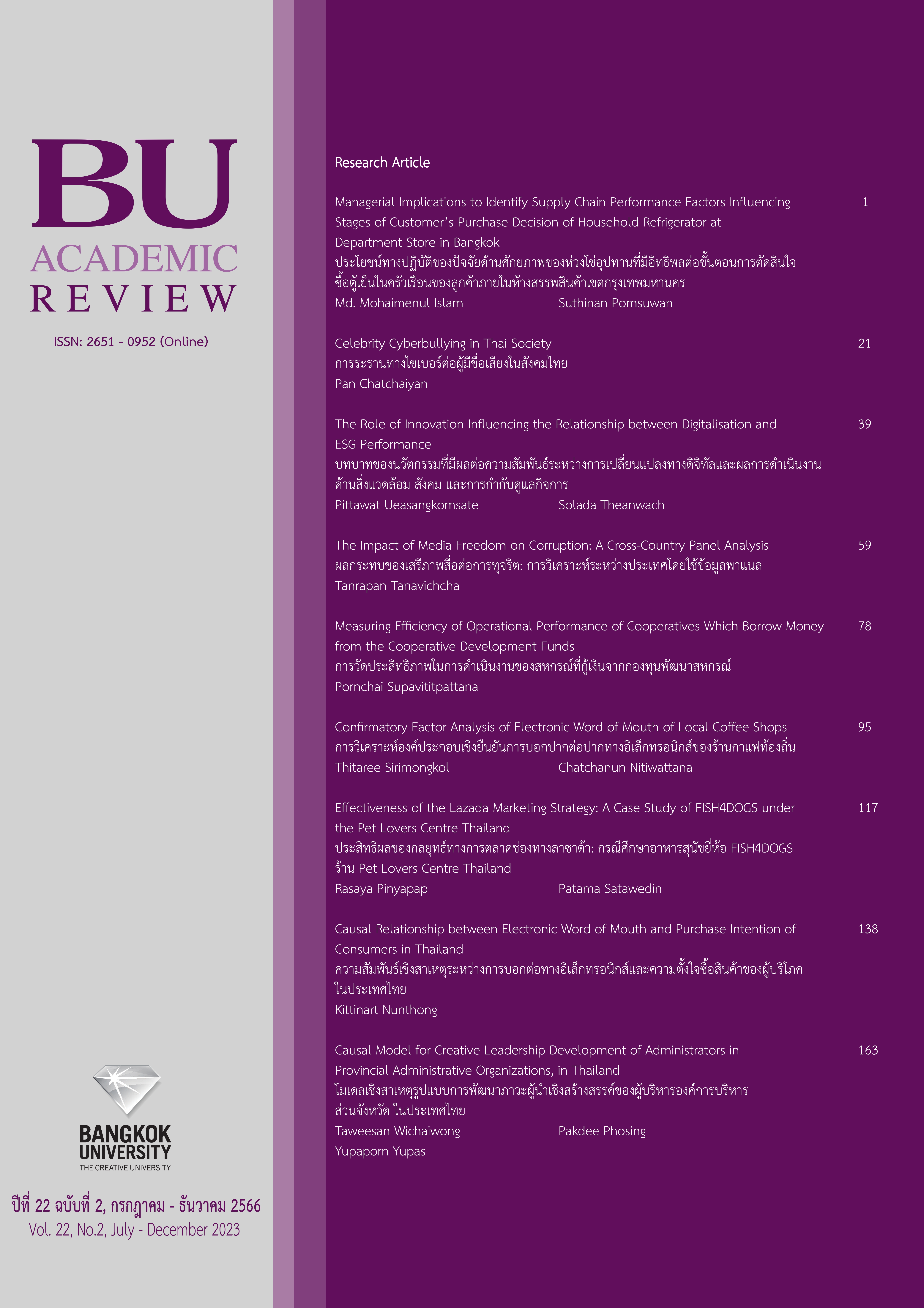The Impact of Media Freedom on Corruption: A Cross-Country Panel Analysis
Main Article Content
Abstract
The objective of this study is to investigate the impact of press freedom on corruption and also analyze how internet freedom affects corruption. The empirical analysis involved an unbalanced panel of 118 countries from 1998 to 2017, thus covering a period of 20 years for press freedom and corruption and an unbalanced panel of 46 countries from 2011 to 2020 covering a period of 10 years for the analysis of internet access and corruption. The results show that press freedom and its legal and political influences have statistically significant negative effect on corruption. A free press reduces corruption. However, in the empirical analysis involving internet freedom on corruption, the study finds no significant effect on corruption. Furthermore, it finds that countries with high exports of natural resources tend to increase corruption, the factors of economic growth and political rights can reduce corruption. The results are consistent in both parts of press and internet media.
Article Details

This work is licensed under a Creative Commons Attribution-NonCommercial-NoDerivatives 4.0 International License.
The manuscript submitted for publication must be the original version, submitted only to this particular journal with no prior acceptance for publication elsewhere in other academic journals. The manuscript must also not violate the copyright issue by means of plagiarism.
References
Ahrend, R. (2002). Press freedom, human capital and corruption. Jordan: Delta.
Andersen, T. B. (2009). E-Government as an anti-corruption strategy. Information Economics and
Policy, 21(3), 201-210.
Brunetti, A., & Weder, B. (2003). A free press is bad news for corruption. Journal of Public
Economics, 87(7-8), 1801-1824.
Chowdhury, S. K. (2004). The effect of democracy and press freedom on corruption: An empirical
test. Economics Letters, 85(1), 93-101.
Elbahnasawy, N. G. (2014). E-government, internet adoption, and corruption: An empirical
investigation. World Development, 57, 114-126.
Enikolopov, R., Petrova, M., & Sonin, K. (2018). Social media and corruption. American Economic
Journal: Applied Economics, 10(1), 150-174.
Freille, S., Haque, M. E., & Kneller, R. (2007). A contribution to the empirics of press freedom and corruption. European Journal of Political Economy, 23(4), 838-862.
Garcia-Murillo, M. (2013). Does a government web presence reduce perceptions of corruption? Information Technology for Development, 19(2), 151-175.
Goel, R. K., Nelson, M. A., & Naretta, M. A. (2012). The internet as an indicator of corruption
awareness. European Journal of Political Economy, 28(1), 64-75.
Gokcekus, O., & Knörich, J. (2006). Does quality of openness affect corruption? Economics Letters, 91(2), 190-196.
Graber, D. A. (1986). Press freedom and the general welfare. Political Science Quarterly, 101(2),
-275.
Guerrero, M. A., & Rodríguez-Oreggia, E. (2008). On the individual decisions to commit corruption: A methodological complement. Journal of Economic Behavior & Organization, 65(2), 357-
Hamada, B. I., Abdel-Salam, A.-S. G., & Elkilany, E. A. (2019). Press freedom and corruption: An examination of the relationship. Global Media and Communication, 15(3), 303-321.
Jha, C. K., & Sarangi, S. (2017). Does social media reduce corruption? Information Economics and
Policy, 39, 60-71.
Kalenborn, C., & Lessmann, C. (2013). The impact of democracy and press freedom on corruption: Conditionality matters. Journal of Policy Modeling, 35(6), 857-886.
Lessmann, C., & Markwardt, G. (2010). One size fits all? Decentralization, corruption, and the
monitoring of bureaucrats. World Development, 38(4), 631-646.
Pratama, R. D., & Setyaningrum, D. (2015). The effect of functional, legislative and public
monitoring on local government performance. Jakarta, IN: Universitas Indonesia.
Shim, D. C., & Eom, T. H. (2009). Anticorruption effects of information communication and
technology (ICT) and social capital. International Review of Administrative Sciences, 75(1),
-116.
Treisman, D. (2000). The causes of corruption: A cross-national study. Journal of Public Economics,
(3), 399-457.
Vaidya, S. (2005). Corruption in the media's gaze. European Journal of Political Economy, 21(3),
-687.
Vemuri, A. W., & Costanza, R. (2006). The role of human, social, built, and natural capital in
explaining life satisfaction at the country level: Toward a national well-being index (NWI).
Ecological Economics, 58(1), 119-133.
Zakaria, M. (2009). Openness and corruption: A time-series analysis. Zagreb International Review
of Economics & Business, 12(2), 1-14.


